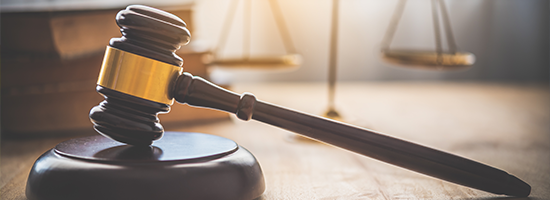
Understanding Evidence in a Criminal Trial
According to the statistics from the FBI Uniform Crime Reporting (UCR) Program, there were 1,014,785 total criminal arrests in California in 2019. If you've been arrested or indicted for a crime, your case will go to trial where the facts and evidence of your case will be reviewed before a law court or jury. Essentially, the outcome of your criminal case often depends on the strength and admissibility of the evidence – including physical proof, witness testimonies, statements, or scientific evidence– presented in court.
With over 14 years of extensive experience, I have devoted my career to offering outstanding legal services and defending individuals facing criminal allegations. As a highly-skilled California criminal defense attorney, I can discuss your unique situation and help you understand the kinds of evidence admissible in a criminal case. Using my extensive knowledge, I can determine whether the available evidence can be used to disprove or prove the facts of your case during trial. My firm – McCready Law Group – proudly represents clients in Long Beach, Cypress Hill, and Lakewood, California.
What Is Evidence?
The term "evidence" in a criminal trial involves any form of proof legally presented at trial – permitted by the judge – to prove or disprove an alleged fact about the case. Evidence aims to convince the court or jury of the points at issue.
Furthermore, evidence may be a material item or any statements of fact that are presented at trial to establish the truth of the matter which is under investigation. Evidence may include blood or hair samples, witness testimonies, statements, email correspondence, or security camera footage.
What Counts as Evidence in a Criminal Trial?
Evidence is a crucial feature of any investigation or criminal proceeding. However, for evidence to be admissible in court, it must possess the following elements:
Relevant – The evidence must prove or disprove the points at issue, a fact, or material.
Competent – The evidence must meet the traditional legal requirements of reliability.
Material – The evidence is being presented to establish a fact of the case.
Not outweighed by countervailing concerns – The evidence cannot be based on hearsay, confusing, worthless, or unfairly prejudicial.
A knowledgeable lawyer can educate you about the different types of evidence and help decide if the evidence is reliable and admissible in court.
Types of Criminal Evidence
Below are the various types of evidence that may be gathered in a criminal trial or case:
Real Evidence: Real evidence includes any material item – a gun, knife, bloody clothing, or marked money – present at the crime scene or involved in the criminal case. Real or physical evidence may be held physically and inspected by the judge or jury.
Demonstrative Evidence: Demonstrative evidence – charts, diagrams, or maps – may be used to back up or reflect the witness's testimony accurately. Such evidence may require reconstructing the scene of the crime and using it at trial.
Documentary Evidence: Documentary evidence may consist of any document provided at trial to prove or disprove the allegations. Documentary evidence may be obtained from a letter connected with the events leading to the incident or crime.
Digital Evidence: Digital evidence includes any digital files or electronic source presented as a fact in a case. Examples of digital evidence are phone calls, text messages, emails, video surveillance recordings, and information/data/files obtained from hard drives.
Testimonial Evidence: Testimonial evidence is any evidence given by a witness under oath, including testimonies and statements. The witness will be called to the trial stand to demonstrate or describe what they heard or saw.
What Evidence Is or Is Not Admissible in Court?
For evidence to be admissible in court, it must be relevant, competent, material, and not outweighed by countervailing considerations. In contrast, evidence will not be admissible in court if:
It was obtained in violation of a defendant's legal rights.
It was obtained illegally, such as unlawful police search or seizure.
It is hearsay.
It is prejudicial.
It is irrelevant to the case.
There are doubts regarding how it was handled.
Considering the nature of evidence during criminal trials, hiring a knowledgeable attorney is essential when facing criminal charges. Your defense attorney can gather enough evidence to support your case, help challenge the prosecutor's evidence, and dispute the allegations against you.
How McCready Law Group Can Help
The burden of a criminal allegation can be an overwhelming one to bear. However, reliable evidence remains a key aspect of any investigation or criminal case. Also, understanding what counts as admissible evidence in court can make it easier for you to manage the court proceedings. A knowledgeable criminal defense attorney can review your unique situation and determine whether or not the prosecutor's evidence is reliable and admissible during trial.
At McCready Law Group, I have the skill, experience, and resources to represent and defend individuals who have been wrongfully charged with a crime. Also, I can help you navigate the California criminal justice system and seek that you get fair treatment at every phase of the legal process.
Contact McCready Law Group to schedule a simple case assessment with an experienced criminal defense lawyer. I have the comprehensive legal counsel and aggressive representation you need in your case. My firm is proud to represent clients across Long Beach, Cypress Hill, and Lakewood, California.
